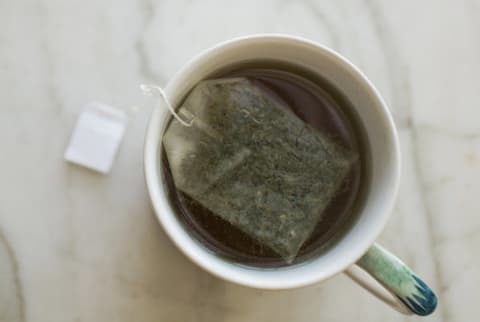Advertisement

Cleansing your face should be a process that protects your skin from further damage — after all, it's the body's largest organ and should be protected at all costs — but many facial cleansers can actually do more harm than good by causing redness, drying out the skin and even promoting new blemishes.
Luckily, natural alternatives to these harsh chemical cleansers exist to provide gentle and safe options using simple, affordable and earth-friendly ingredients.
Raw (Unpasteurized) Honey
Why you should try it: Raw honey is an excellent alternative to store-bought cleansers. Pasteurized honey often doesn't contain pollen and has been heated to a point that it's lost all the vitamins and enzymes that are so beneficial to your skin, so it's important to use a raw variety for your skin care. This earth-friendly option also has anti-bacterial and probiotic properties, so it helps to gently remove dirt and impurities, and effectively reduces breakouts while also preventing new ones.
How to use it: To cleanse skin, massage a tsp. of raw honey onto your face. Rinse with warm water and pat skin dry. For a deeper clean, leave the honey on clean skin for 10-15 minutes before rinsing. Try using a raw honey cleanser as part of your morning routine to leave skin feeling clean, smooth and refreshed throughout the day.
Oil Cleansing
Why you should try it: Although cleaning your skin with oil sounds contradictory — isn't the whole point of washing your face to get rid of oil? — this method subscribes to the idea of treating like with like. The oil you use to cleanse your skin actually binds to the oil already on your skin and removes it (and impurities) when rinsed off.
How to use it: There are many great oil options available, but the type you use depends on your skin. Here are a few of my favorites.
- Coconut oil: I like this oil for all skin types, but make sure you look for organic and unrefined.
- Castor oil: Best for acne-prone skin, castor oil should never be used undiluted (look for a blend that only includes up to 30% castor oil) as it can dry out and irritate sensitive skin.
- Jojoba oil: Also good for acne-prone skin, jojoba oil can be used by itself or combined with another oil to offset the usually high cost.
- Grapeseed oil: This is my favorite for oily skin
- Avocado oil: My favorite for dry skin.
There are countless blending options available and everyone's skin is unique, so the exact blend will vary individually. It's important to cleanse according to what your skin needs, not the latest trend.
Cleansing with oil is done similarly to the honey method above: Warm about one tsp. of oil with your fingers, then massage into your skin in a circular motion for 1-2 minutes. Wet a washcloth with hot water, wring out the excess and place over your face for 30 seconds before gently removing any excess oil. The heat helps loosen the oil and enlarges pores to pull out impurities. Finish with a splash of cool water or toner to close pores and keep them clear.
Natural Toner
Why you should try it: This toner is a powerful, natural astringent that pulls impurities and balances the skin's pH levels while also acting as an antibacterial (apple cider vinegar).
How to use it: The recipe is incredibly simple and only requires two ingredients. Just blend two parts witch hazel with one part unfiltered apple cider vinegar and apply to your skin after cleansing.
Green tea is another great all-natural toner option. Rich in polyphenols, green tea provides your skin with antioxidants, is antibacterial and helps fight inflammation. Brew the tea and allow it to cool before use.
Natural Exfoliant
Why you should use it: Exfoliating with baking soda plays an integral role in your skin care regimen to remove dead skin, keep pores clear and even out skin tone.
How to use it: Using a 50:50 ratio, create a thick paste of baking soda and water (or baking soda and your favorite oil). Massage into skin for one to two minutes and gently wipe away with a warm washcloth. If using an oil blend, follow the same rinsing instructions for the oil cleansing method.
Creating your own natural skin care products can be daunting at first and may take some trial and error to determine what methods work best for your body, but these simple changes will pay off by helping you lead a healthier lifestyle. Using alternative methods isn't just beneficial for your skin, these products are more cost-effective and environmentally friendly than purchasing dozens of products each year. So do what's best for your skin, your wallet and the earth, and give natural skin care a try.
